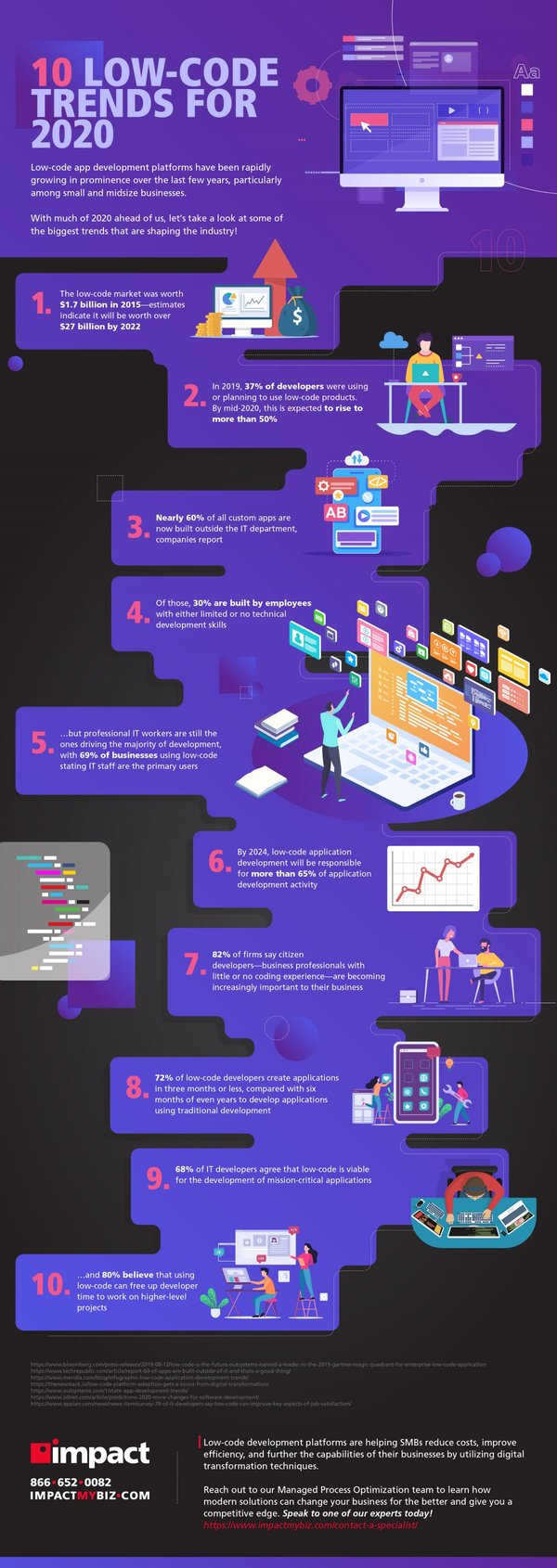As demand for mobile apps skyrockets, IT can barely keep up—and things are only getting worse. However, a new report from Forrester research offers hope to developers struggling to meet business demand for enterprise apps. Forrester suggests exploring low code development tools to drive digital transformation.
A recent Forrester low-code report warns that "a tidal wave" of requests for applications are about to hit IT departments from project management. They represent a "new generation of applications to meet enterprise needs to win, serve, and retain customers."
"Organizations already have more demand for business applications than they can handle," the report continues. "How can businesses expand their app delivery capacity to meet this exploding demand, which includes new and unfamiliar technologies?"
The report concludes that low code development platforms can go a long way towards solving the problem. Low code software solutions allow developers or business users to build and deploy business applications with little hand-coding. While they dramatically speed the building of mobile apps, these development platforms also allow for custom coding, when required. These innovative solutions allow companies to build more apps faster, without hiring software development experts, such as mobile application developers.
Why Low Code Development Tools Help Enterprises
Low code app development does more than speed work for experienced developers. How low code development tools help is that they also widen the circle of “developers” as they dramatically expand who can develop web and mobile business apps. Now far more people than those who typically write applications in enterprises - they're called citizen developers.
According to Forrester, "Low code platforms enable a broad range of developers." This is incredibly important to companies that must turn old desktop applications into modern business apps that work on mobile devices.
The report recommends that enterprises incorporate low code development tools into the IT portfolio. Forrester analysts say that the platforms aren't likely to replace all other methods of application development, but will instead augment them.
Forrester advises IT leaders to "identify what level of data and system integration you expect the low code platform to handle." And the report suggests that companies clearly define which apps should be built using low code, and which shouldn't. The report calls-out apps for customers apps as being particularly well suited.
One Low Code Development Tool Gets High Marks from Developers
Alpha Anywhere gets outstanding product reviews from developers and development teams who build applications. Users highlight this solution for its speed of development, flexibility, integration power and offline capability.
This low code application platform delivers rapid application development with a friendly development environment. The platform can integrate mobile apps with databases, include the latest smartphone features, and publish to the cloud. Business users and developers on product review websites regularly award this low-code software tool 5-stars.
View the video: "What Makes Alpha Anywhere Low Code Development Special?"
Interested in giving low-code development tools a try? Alpha Software offers a free download.
Low Code Tools: Historical Facts and Future Trends
Let’s begin with some historical facts pertaining to the origin of low code in IT:
- The concept of democratization of software development dates as far back as 1982, when James Martin wrote the book “Application Development without Programmers”. It led to a fourth-generation programming language using computer-assisted software engineering tools but fell short when it failed to deliver according to users’ expectations.
- The term low-code was coined in 2014.
Impact recently released a low code infographic that showcased evidence that the popularity of low code development tools is growing. The low code trends included:
- Low-code application development is expected to contribute to more than 65% of application development activity by 2024.
- For comparison sake, consider this: In 2015, the low-code market was worth $1.7 billion whereas it is poised to be worth a whopping $27 billion plus by 2022, as per estimates.

It's clear that these new platforms will change how people automate platforms, interface with mobile devices and conduct process automation in the future.







Comment